Building Student-Advisor Relationship Transcript
Narrator: When we talk about relationships and belongingness here, we’re really talking about advisors trying to know that student academically, knowing them personally, knowing them as a whole student, really, really knowing what makes them tick.
Teacher: This about science and all the things you could explore through this project.
Student: Yeah. I typed it out so I can have it all prepared when they ask.
Narrator: The role of an advisor is going to be to guide students and say, here’s where you’re at, here’s where you want to be. How can I help you get there?
Teacher: We’re gonna head into advisory in the conference room. Okay?
Narrator: In advisory, we’re hearing announcements and things like that, but also, it’s that connection piece. Are they accomplishing their goals? How are they doing personally? What’s going on in their home life?
Teacher: I would still go back and check the intensities and the date matchup on that other site.
Student: Okay.
Narrator: Sometimes they just need help in direction, but sometimes, it becomes a deeper conversations with them where they have to realize what their ultimate goal in this life is not what they’ve somehow set their dream on, maybe at a young age, but who they’re becoming as an adult person in this world. The deeper learning comes from them experiencing a variety of things and realizing what is important to them and what isn’t important to them.
Student: They’re there for me to help lead me with my teaching, but they also care about what I’m learning and what I want to accomplish in my life. They help me make individualized learning plans from what I want to do, what I want to do to succeed.
Narrator: Some students will be like—they don’t need a lot of help from an advisory. Other students, the advisor’s gonna have to swing past their desk every 15 minutes.
Student: Science. I know I need more in that.
Teacher: You have three credits required. You need to get all of the different areas.
Narrator: We call each other by first names for a reason because I want us to be at an even playing field. If they start lacking responsibility, then I need to move up a little bit here until we can figure out what’s going on that causing that lack of responsibility. Then, hopefully, we can move them back to an even level again.
Teacher: Here’s a couple things. Yeah.
Narrator: The students and teachers need to trust each other. It’s a partnership alongside, and you have to build that partnership. As an advisor, you have to know when you can spend some political chips, relationship chips, and ask a little bit more of the students.
Teacher: I think we should try to schedule that for next week.
Narrator: The students with that relationship need to trust the advisor and say, well, you think I can do it. I’ll give it a go.
Teacher: What do you think you wanna address today that’s on that list?
Narrator: When they’re basically telling me this is who I am, this is where I’m headed, that’s when I get out of their way. That’s when I know they’re ready. That’s when I know that this has worked.
Teacher: Can we shoot for Tuesday next week?
Narrator: The students start to see that it’s not just them and one teacher; it’s them with a community.
Teacher: Announcements real quick.
Narrator: As you focus on building these relationships, there’s kind of a natural byproduct that comes out of the plan of moving a student toward their future.
[End of Audio]

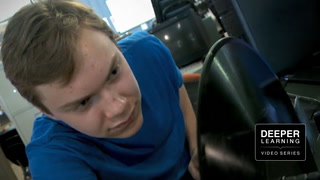
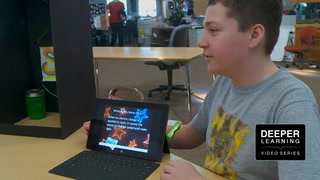
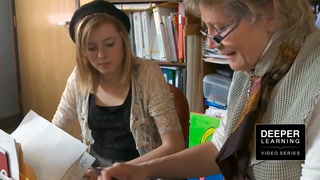
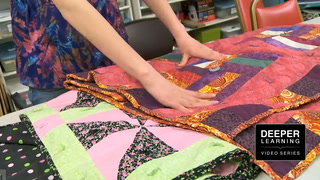
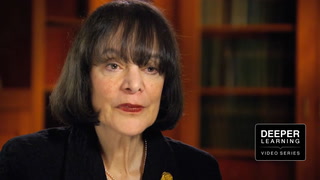








5 Comments
Paige Klumpe Sep 25, 2022 2:45pm
These advisors give education help, but also learn about them personally. They learn what is important to each student, and help lead students in the right direction. They learn about their goals and help them achieve them. This brings a level of trust to students. I think this helps the students realize that someone is in their corner.
Diane Nelson Feb 22, 2019 11:47am
Teachers are advisers. helping student set up goals and follow thier course. Check in on the students to be sure they are still interested in their orignal idea. Students become independent learners and develop a partnership with their adviser. The adviser is responsible for helping to motivate the students. STudents connect withthe community and have a valued role in the community.
Jane Brady Sep 19, 2016 11:23am
Madiha Qadri Oct 29, 2014 3:43pm
Nathan Schultz Apr 17, 2014 11:02pm